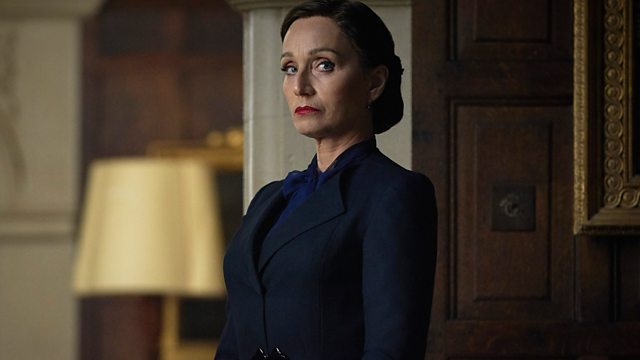Kristin Scott Thomas talks about playing Mrs Danvers in Rebecca
Kristin Scott Thomas talks about her career from its beginnings with a theatre troupe in a field in Burgundy in the 1980s, to her most recent role of Mrs Danvers in Rebecca.
In an extended interview, Dame Kristin Scott Thomas talks about relishing her latest role as the scary housekeeper Mrs Danvers in the new Netflix adaptation of Daphne du Maurier’s Rebecca.
Kristin first trained to teach drama, not to perform in it and when she tried to transfer to the acting course, she was told, without any consoling words, that her only real chance of playing a big part was to join an amateur drama group. Devastated, Kristin went to Paris to become an au-pair and eventually trained as an actor there. After a terrific review for a performance with a travelling theatre troupe, she landed a part in a Prince video which was followed by her first big break, playing the amoral, adulterous wife Brenda in an adaptation of Evelyn Waugh's A Handful of Dust. Since then she's often been associated with a kind of bone-china English womanhood — playing characters who are beautiful, refined, perhaps a little brittle too— characters such as Katherine in Anthony Minghella's film The English Patient or Fiona in Four Weddings and a Funeral.
Kristin reflects on how her upbringing taught her to hold back on emotions, and how she’s always sought out roles like Fiona, where the character is not all she seems and drops a mask. And she describes how her recent appearance in Fleabag struck a chord with a lot of women, where she gave a hilarious and rousing speech about reaching the menopause.
Interviewed guest : Dame Kristin Scott Thomas
Presenter : Tom Sutcliffe
Producer : Dymphna Flynn
Studio Manager : Jackie Margerum
Last on
Rebecca
Main image: Kristin Scott Thomas
Photo credit: Netflix
Broadcast
- Tue 3 Nov 2020 19:15�鶹������ҳ��� Radio 4
�鶹������ҳ��� Arts Digital
The best of British culture live and on demand.
Podcast
-
![]()
Front Row
Live magazine programme on the worlds of arts, literature, film, media and music



